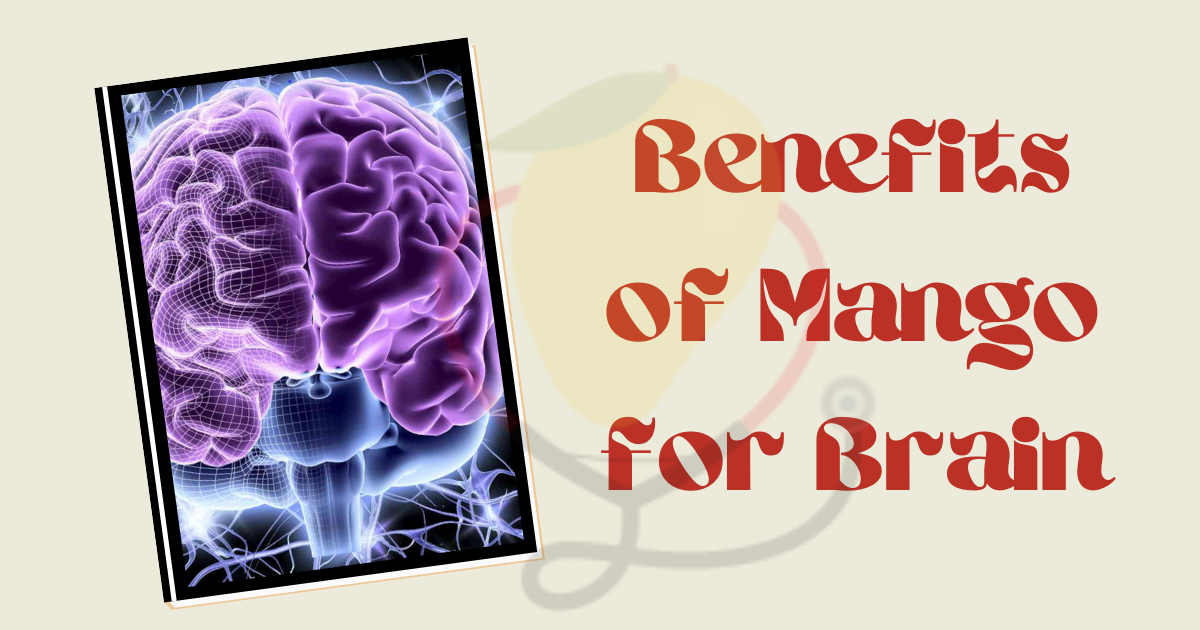Mango is known as one of the best brain foods because it contains lots of vitamin B6, which is really important for keeping our brain working well. [1]
Some studies suggest that not having enough of this vitamin could lead to problems with thinking and memory as we get older.
So, eating mangoes can be good for our brain.
In this article, we will explore the various benefits of mango for brain and promote cognitive function.

Benefits of Mango For Brain Health
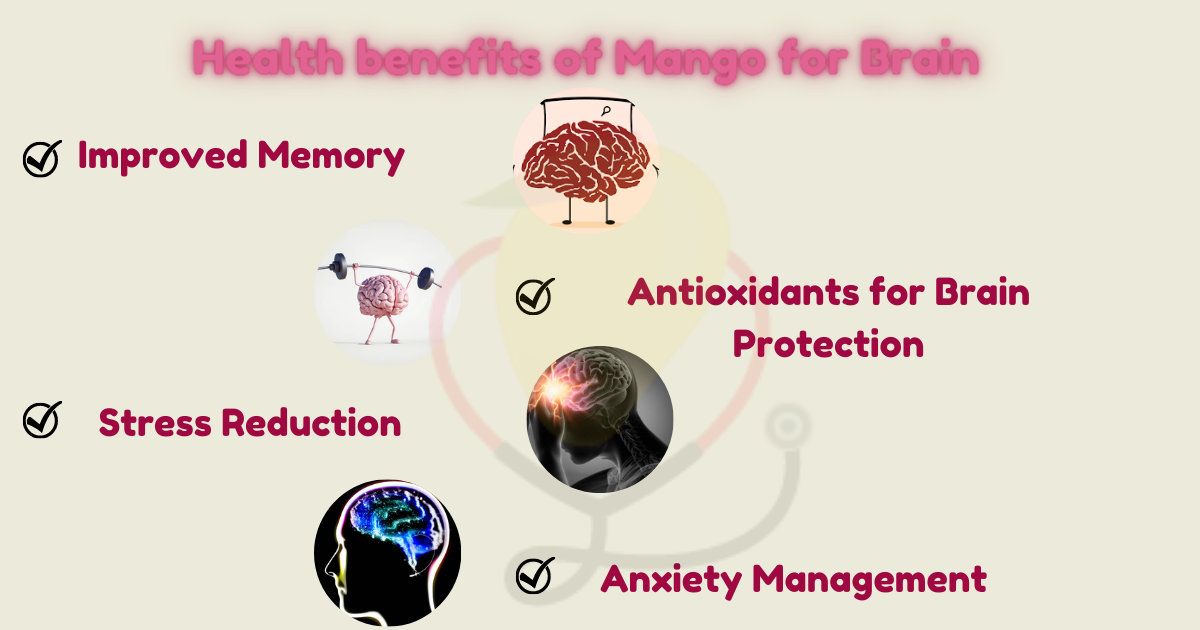
1: Antioxidants in mango for Brain Protection
The brain is highly susceptible to oxidative stress caused by free radicals.
Mangoes, with their high antioxidant content, help neutralize these harmful free radicals, reducing the risk of oxidative damage to brain cells. [2]
This protection may aid in preventing age-related cognitive decline and neurodegenerative diseases.
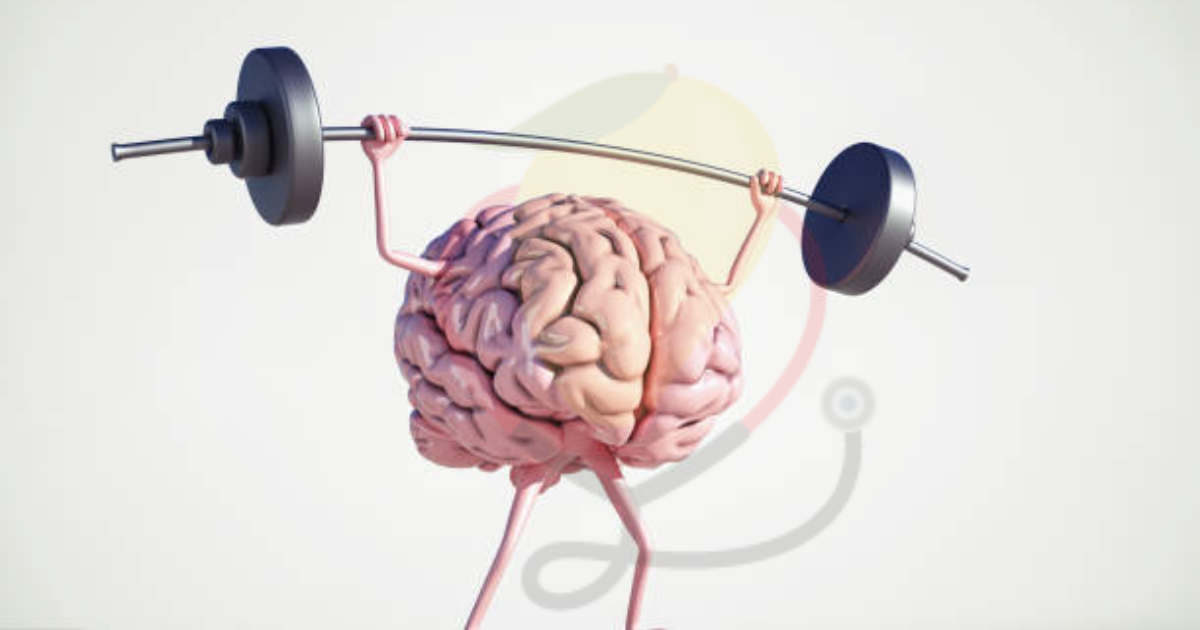
2: Improved Memory and Concentration
The vitamins and minerals present in mangoes play a vital role in cognitive function. [3]
Vitamin B6, for instance, supports the production of neurotransmitters that enhance memory and concentration.
3: Stress Reduction and Anxiety Management
Mangoes contain a compound called linalool, known for its calming effects on the nervous system.

This natural stress-reliever can help reduce anxiety levels and promote a sense of relaxation.
Role of Vitamins and Minerals
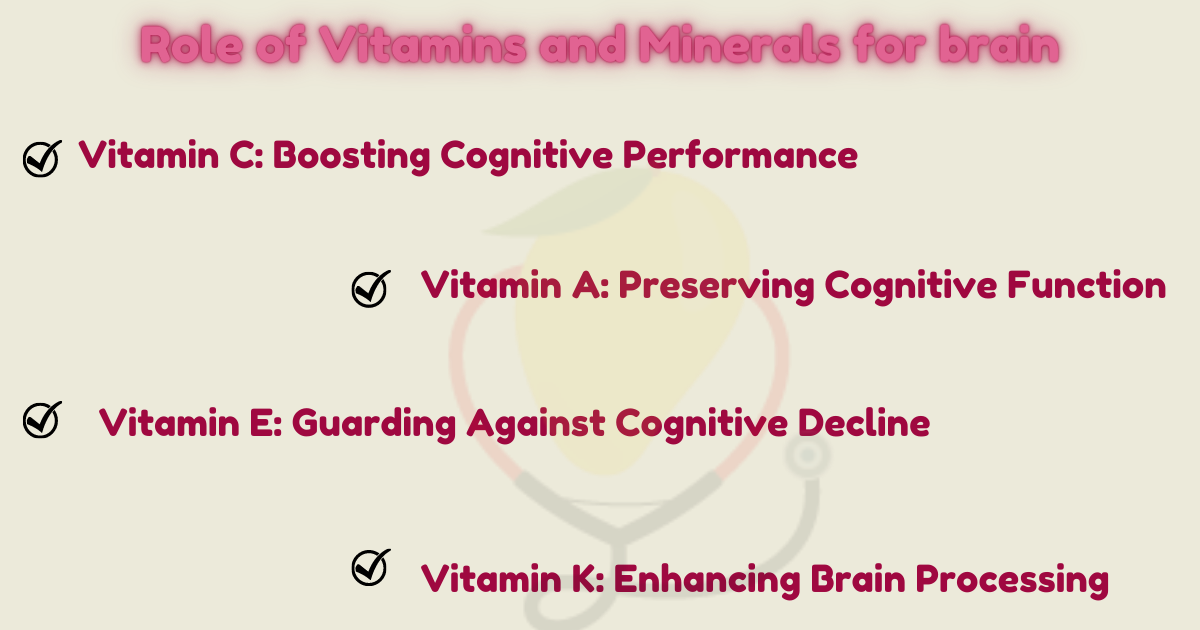
1: Vitamin C: Boosting Cognitive Performance
Vitamin C is [4] crucial for maintaining healthy brain function as it protects brain cells from oxidative stress and supports the synthesis of neurotransmitters like serotonin and dopamine.
2: Vitamin A: Preserving Cognitive Function
Vitamin A [5] is essential for maintaining healthy brain tissue and plays a key role in preserving cognitive function as we age.
3: Vitamin E: Guarding Against Cognitive Decline
Vitamin E [5] is known for its neuroprotective properties, safeguarding brain cells from damage and potentially reducing the risk of cognitive decline.
4: Vitamin K: Enhancing Brain Processing
Vitamin K [5] aids in the production of sphingolipids, a type of fat present in high concentrations in the brain.
These lipids are vital for cell membrane health and support brain processing.
5: Potassium: Regulating Brain Electrical Activity
Potassium plays a significant role in maintaining proper electrical activity in the brain, which is essential for communication between brain cells.
Mangoes and Neurotransmitters
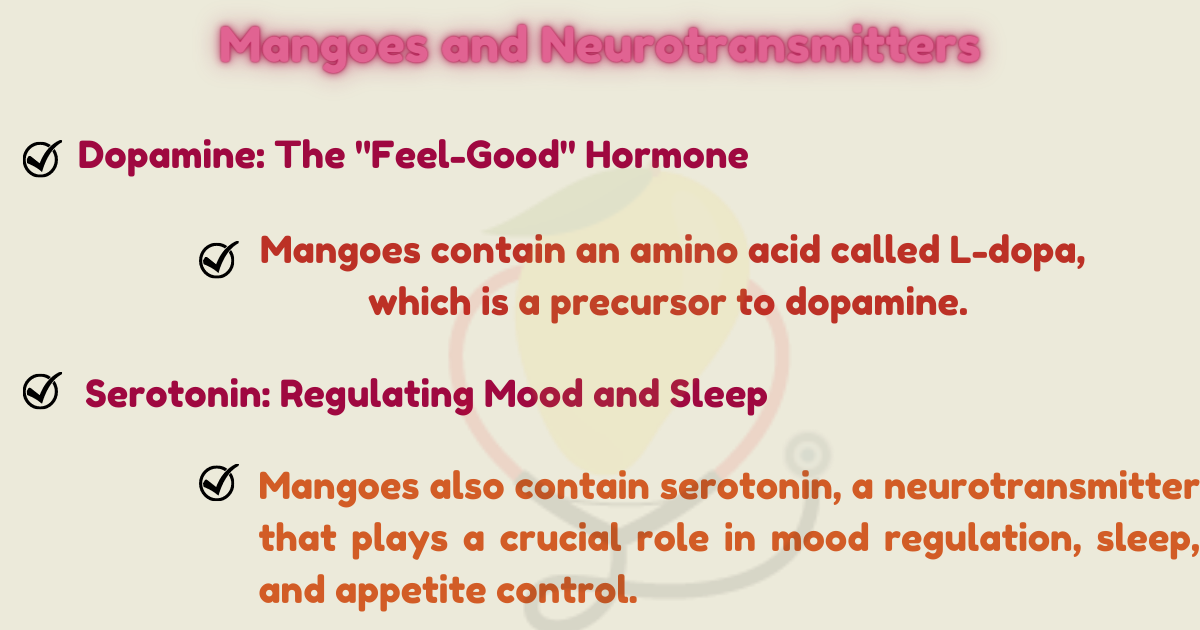
1: Dopamine: The “Feel-Good” Hormone
Mangoes contain an amino acid called L-dopa, which is a precursor to dopamine.
Dopamine is a neurotransmitter associated with pleasure, reward, and motivation, contributing to overall well-being.
2: Serotonin: Regulating Mood and Sleep
Mangoes also contain serotonin, a neurotransmitter that plays a crucial role in mood regulation, sleep, and appetite control.
Mangoes and Neuroplasticity
1: Supporting Brain Cell Communication
The nutrients in mangoes support neuroplasticity, the brain’s ability to form new connections and adapt to changing circumstances, which is fundamental for learning and memory.
2: Encouraging Learning and Adaptation
Regular consumption of mangoes may facilitate learning and adaptation processes in the brain, making it easier to acquire new skills and knowledge.
Anti-inflammatory Properties
1: Reducing Brain Inflammation
Mangoes possess anti-inflammatory properties, which may help reduce brain inflammation, potentially benefiting individuals with neurological conditions.
2: Potential Impact on Neurological Disorders
While research is ongoing, the anti-inflammatory and antioxidant properties of mangoes show promise in supporting brain health and possibly providing relief for certain neurological disorders.
Mangoes and Healthy Blood Flow

1: Promoting Optimal Brain Circulation
The abundance of vitamins and antioxidants in mangoes supports healthy blood flow to the brain, ensuring adequate oxygen and nutrient supply.
2: Reducing the Risk of Stroke
A diet rich in mangoes may help reduce the risk of stroke by promoting cardiovascular health and maintaining proper blood pressure levels.
Recipes of Mango for Brain Health
- Mango Smoothie Bowl
- Mango Yogurt Parfait
- Mango Salsa for a Refreshing Boost
Mangoes, beyond their delectable taste and juicy texture, offer a myriad of benefits for brain health.
Rich in essential vitamins, minerals, and antioxidants, they play a significant role in protecting brain cells from oxidative stress, improving memory, reducing stress and anxiety, and supporting healthy brain circulation.
Incorporating mangoes into your daily diet can be a simple yet effective way to nourish your brain and promote cognitive well-being.
FAQs
Can mangoes improve memory?
While no single food can guarantee memory improvement, the nutrients found in mangoes, such as vitamin B6 and antioxidants, contribute to brain health, potentially enhancing memory function.
How many mangoes should one consume for brain benefits?
There is no specific daily quantity, but incorporating mangoes into your diet regularly, alongside other brain-boosting foods, can contribute to overall brain health.
Are there any side effects of eating mangoes for brain health?
In general, mangoes are safe and beneficial for brain health. However, individuals with mango allergies or certain medical conditions should consult their healthcare provider before consuming large quantities.
Can mangoes help with anxiety and stress?
Mangoes contain linalool, a compound known for its calming effects. While they may help manage stress, they should not replace professional medical advice or treatments for anxiety disorders.
Is it better to consume fresh mangoes or mango juice?
Fresh mangoes retain more of their natural nutrients and fiber compared to mango juice. Eating whole mangoes is recommended for maximum brain health benefits.

